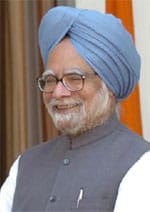 |
|
Manmohan Singh: Has more scope to enact reforms. |
Even with a slowdown in reforms, Indian equipment and capital goods manufacturers reported a 93% increase in orders to $9.18 billion during the April-to-June 2008 quarter. The Federal government, state governments and public sector companies accounted for 55% of these orders. The private sector contributed 31% while overseas corporations placed the remaining 14% of orders. Engineering, construction and infrastructure companies accounted for 57% of these orders.
In a trend that could eventually affect how Indian IT services companies do business, the 2008 Black Book “State of the Outsourcing Industry” survey shows a growing demand for global outsourcing firms to locate their front-office operations onshore in the US or Europe with low-level back-office functions outsourced to less expensive locations such as India. The closely watched survey ranks the top outsourcing vendors globally. Five Indian firms—Wipro, Satyam, Genpact, Cognizant and Tata Consultancy—ranked in the top 20. Twelve of the top 20 outsourcing companies were US corporations, reflecting a major shift from 2004, when just two US companies made it to the top 20. The 2008 survey reflected the views of 24,000 IT services buyers globally. Infosys Technologies, the third-largest Indian IT services company, which was ranked number 10 last year, and ICICI Firstsource, another large Indian company, both dropped out of the top 50 as they were perceived as having a major imbalance between offshore development and local front-office presence in North America.



